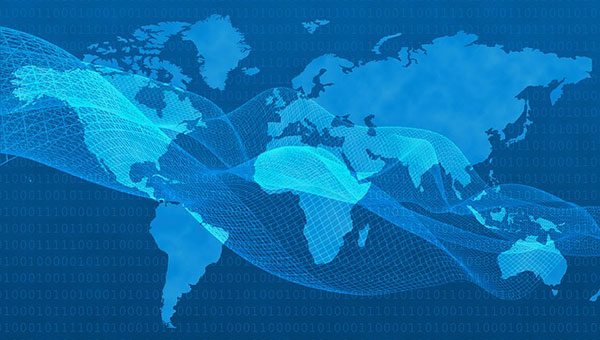 The English language has traditionally embraced new words in response to the cultural evolution of civil society, in response to the production of new products and services, and to the articulation of innovative concepts in science and technology.
The English language has traditionally embraced new words in response to the cultural evolution of civil society, in response to the production of new products and services, and to the articulation of innovative concepts in science and technology.
However, English has, at times, been at a loss in expressing subtle nuances of meaning. In contrast, the Greek lexicon has six words for the single English noun love. Eros, agape, filia, storgi, patriotosmos and filotimo each describe a separate nuance of that particular emotion.
Recently, marching to the beat of a different drummer, the English language has adopted a new concept and a new word: internetization. It supplants the word globalization, which is now an anachronism and has lost its relevance.
Internetization – global outreach on steroids – is globalization empowered by electronic connectivity.
The word globalization has two distinctive drawbacks.
First, it has passed its best-before date and is no longer a relevant concept. Global linkages between countries through trade, military conquest, colonization and cultural outreach have existed since time immemorial.
Second, globalization doesn’t reflect the electronic empowerment that has been unleashed by the information technology and communications revolution. In consequence, it’s not an accurate descriptor for the Internet-driven change sweeping the economic landscape.
Internetization corrects this deficiency through its embrace of all things digital and electronic. As such, it has the power to dynamically alter our lives.
And it opens a new substratum in the function of language. In English, for instance, it subtly varies its revelations of the world depending on how it’s used – as a noun, verb, adjective or adverb.
As a noun, the word operates in stasis, as in “Economic activity can be enlarged exponentially through internetization.”
As a verb, it conveys power, as in “I will internetize my philosophy of ethics in order to elicit the thoughts of others.”
As an adjective, it modifies or refines activities or realities, as in “Internetizational transmission of my symphony will get me an audience in Europe.”
As an adverb, it limits or expands the scope of its energy, as in “I can understand Picasso’s paintings only if I invoke other critics’ opinions internetizationally.”
The reach of this significant word extends, then, over all human functional and creative disciplines. For example, embracing economics, philosophy, literature, music and art. All of this takes on added importance because internetization, driven by the information and communications revolution, connects billions of people to data, machines and one another.
The electronic prefix that appears before an increasing number of our daily activities – such as e-commerce, e-mail, e-learning, e-entertainment, e-banking, e-business and e-government – is a tangible expression of the pervasive influence of the Internet and of this new word. By digitalizing data, we have transformed the industrial age into the information highway.
Internetization has made time and geography irrelevant. It has reduced communications to nano-seconds. It makes geographical boundaries porous and insignificant in terms of social, economic and political outreach.
Civil society has been transformed by internetization. Digital connectivity has truly made the world a global village. Internetization has enabled people, businesses, institutions, governments and cultures to interact on multiple levels of experience.
Electronic interconnectedness is the virtual glue that holds the contemporary global economy together. Its signature marks – new ideas, new technologies, new products – are all conveyed in the linguistic manifold of the term internetization itself.
Electronic financial transactions are the modern face of banking. The new technological infrastructure has empowered services to be delinked from production and performed remotely. Markets for internationally integrated but geographically dispersed business enterprises are global rather than national.
The new digital technologies have displaced the physical market with the virtual market of the Internet for business-to-business and business-to-consumer transactions.
Internetization is a revolutionary term that not only signifies and embraces all our traditional behaviours, activities and ideologies, but in the course of doing so changes them, altering our very consciousness.
Dr. Constantine Passaris is a professor of Economics at the University of New Brunswick and a national research affiliate of the Prentice Institute for Global Population and Economy at the University of Lethbridge. Theis commentary was co-authored by Dr. Allen Bentley, a professor of English (retired) at Saint Thomas University.
Constantine is a Troy Media Thought Leader. Why aren’t you?
The views, opinions and positions expressed by columnists and contributors are the author’s alone. They do not inherently or expressly reflect the views, opinions and/or positions of our publication.

